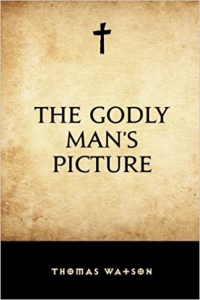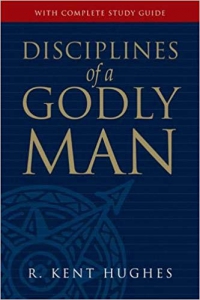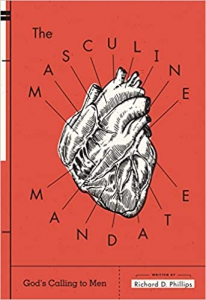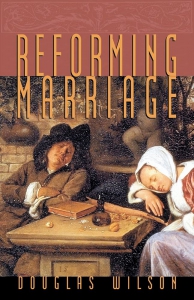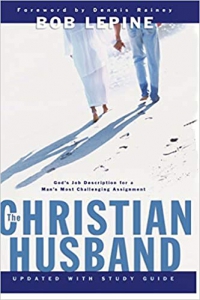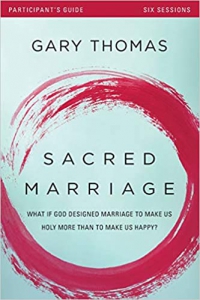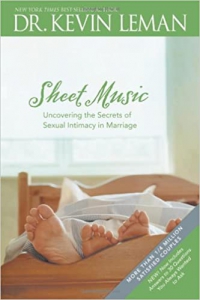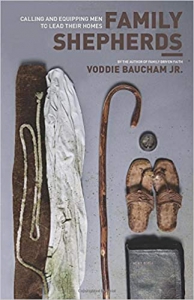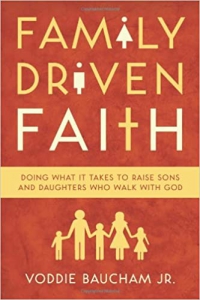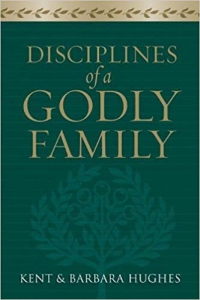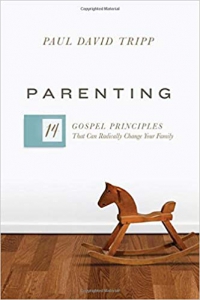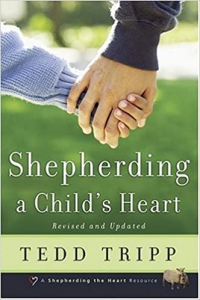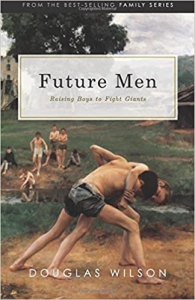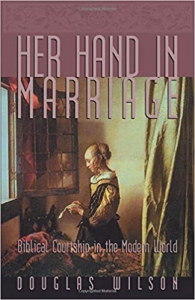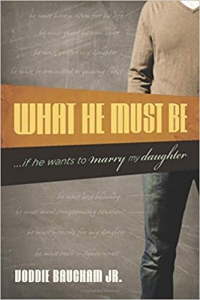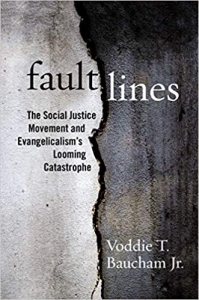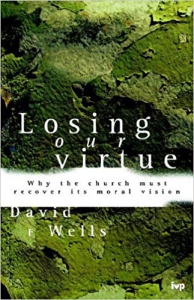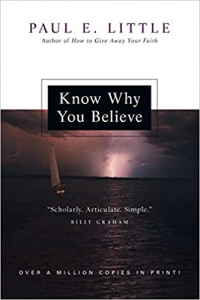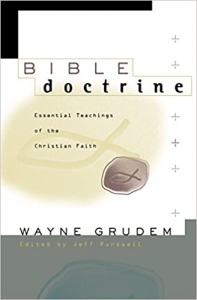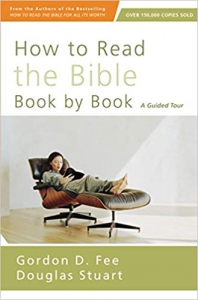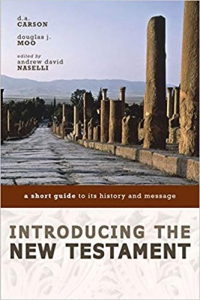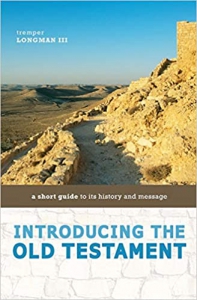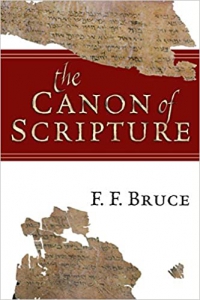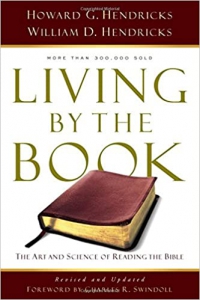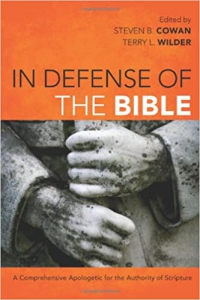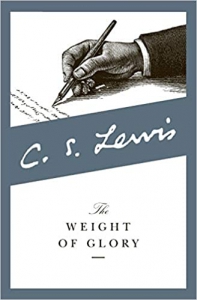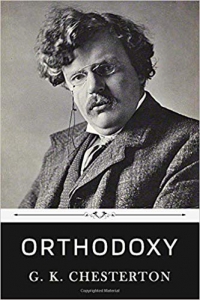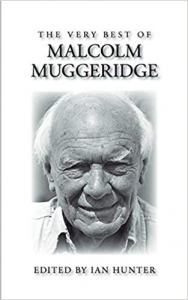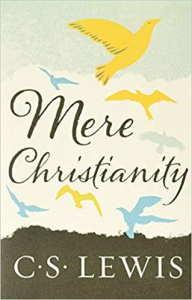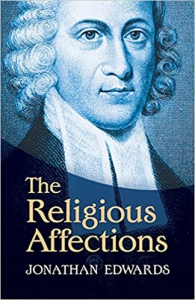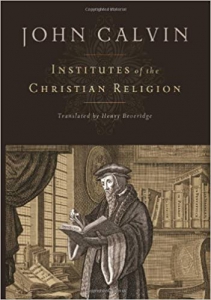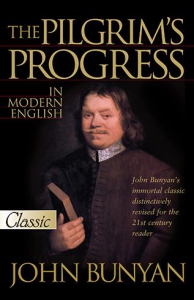FBC Recommended Reading for Men
Biblical Manhood
|
The Godly Man’s Picture by Thomas Watson Thomas Watson is one of the most famous Puritan preachers in history, and his writings during the 17th Century are still read across the world today. This book is Watson’s exposition on Puritan theology, and his description of what it takes for men to walk in godliness with Jesus Christ. |
|
Disciplines of a Godly Man by R. Kent Hughes No man will get anywhere in life without discipline and growth in godliness is no exception. Seasoned pastor R. Kent Hughes’s inspiring and best-selling book Disciplines of a Godly Man―now updated with fresh references and suggested resources―is filled with godly advice aimed at helping men grow in the disciplines of prayer, integrity, marriage, leadership, worship, purity, and more. With biblical wisdom, memorable illustrations, and engaging study questions, this practical guide will empower men to take seriously the call to godliness and direct their energy toward the things that matter most. |
|
The Masculine Mandate by Richard D. Phillips Phillips cuts through the cultural confusion, highlights God’s clear mandate for men, and encourages men on a journey of repentance and renewal. Beginning in the Garden of Eden, the author draws foundational teaching from the earliest chapters of God’s Word. Christian men today need to examine their hearts and embrace their God-given mandate. Only then will they be able to recognize their high calling, and by God’s grace, serve faithfully in whatever context God has placed them. |
Godly Husbandry
|
Reforming Marriage by Douglas Wilson How would you describe the spiritual aroma of your home? The source of this aroma is the relationship between husband and wife. Many can fake an attempt at keeping God’s standards in some external way. What we cannot fake is the resulting, distinctive aroma of pleasure to God. Reforming Marriage does what few books on marriage do today: it provides biblical advice. Whether it has to do with respect and love, confession of sin, sexual fidelity, or even the gnarly issues of divorce and remarriage, Douglas Wilson points to the need for obedient hearts on the part of both husbands and wives. This book is part of the Canon Press series of books on the family, which has helped many people trying to deal with the on the ground messes that come with sinners living under the same roof. Godly marriages proceed from obedient hearts, and the greatest desire of an obedient heart is the glory of God. |
|
The Christian Husband by Bob Lepine FamilyLife Today cohost Bob Lepine takes men deeper into what it means to be a Christlike husband. Providing a clear explanation of the spiritual priorities for any godly husband, he supplies practical pointers for making real-life changes. Readers will learn exactly what God expects from them according to biblical principles–not cultural fads. Discover the advice and teachings offered by Bob Lepine and other men who are seeking to follow the divine call of God–to truly be a Christian husband and learn how to put it into practice. |
|
Sacred Marriage by Gary Thomas Sacred Marriage invites you to see how God can use marriage as a discipline and a motivation to reflect more of the character of Jesus. Your marriage is much more than a union between you and your spouse. It is a spiritual discipline ideally suited to help you know God more fully and intimately. Sacred Marriage shifts the focus from marital enrichment to spiritual enrichment in ways that can help you love your mate more. Whether it is delightful or difficult, your marriage can become a doorway to a closer walk with God. Everything about your marriage—from the history you and your spouse create, to the love you share, to the forgiveness you both offer and seek by turn—is filled with the capacity to help you grow in Christ’s character. In addition to life-changing insights, you’ll find a wealth of discussion questions in this Participant’s Guide that will spark meaningful conversation in your group, between you and your spouse, or to simply ponder by yourself. You’ll also find self-assessments, activities, and highlights all created to help you engage deeply and prayerfully with the content of this study. |
|
Sheet Music by Kevin Leman With his characteristic warmth and humor, Dr. Kevin Leman offers a practical guide to sex according to God’s plan. This frank and practical book is a perfect resource for married and engaged couples. Leman addresses a wide spectrum of people, from those with no sexual experiences to those with past sexual problems or even abuse. Using frank descriptions, this book has a warm and friendly tone that will help couples overcome their awkwardness in discussing an issue important to all married couples. |
Christian Parenting
|
Family Shepherds: Calling and Equipping Men to Lead Their Homes by Voddie Baucham Jr. It’s hard to overestimate the importance of the family, and that of fathers in particular. We’ve heard it said, “As the family goes, so goes the nation.” But it can also be said that “as the father goes, so goes the family.” Consequently, Voddie Baucham has set out to teach men how to faithfully shepherd their families. Derived from Baucham’s monthly meetings with men in his church, Family Shepherds calls men to accountability for their God-given responsibilities in their homes. Baucham’s clear style and practical approach will spur men to protect their marriage, raise kingdom-minded children, value the synergy between church and home, and navigate difficult family dynamics. Family Shepherds is a book for any husband or father looking to lead well. |
|
Family Driven Faith: Doing What It Takes to Raise Sons and Daughters Who Walk with God by Voddie Baucham Jr. More teens are turning away from the faith than ever before: it is estimated that 75 to 88 percent of Christian teens walk away from Christianity by the end of their freshman year of college. Something must be done. Family Driven Faith equips Christian parents with the tools they need to raise children biblically in a post-Christian, antifamily society. Voddie Baucham, who with his wife has overcome a multigenerational legacy of broken and dysfunctional homes, shows that God has not left us alone in raising godly children. This bold book is an urgent call to parents―and the church―to return to biblical discipleship in and through the home. This paperback edition includes a new preface and a study guide to facilitate interaction in small-group settings and to help parents put principles into practice. |
|
Disciplines of a Godly Family by R. Kent and Barbara Hughes Disciplines of a Godly Family covers such topics as establishing a solid family heritage, promoting affection between family members, encouraging godliness in children, using appropriate discipline, and helping children cultivate enriching lifelong habits. Kent and Barbara Hughes also offer tips for fun and affordable family vacations, creating family traditions, and starting a prayer notebook. They even give us a suggested list of books and videos that should be in every family’s library. For those struggling to parent their own children or to equip other parents for this task, a more practical, honest, and common-sense guide will be hard to find. |
|
Parenting by Paul David Tripp What is your calling as a parent? In the midst of folding laundry, coordinating carpool schedules, and breaking up fights, many parents get lost. Feeling pressure to do everything “right” and raise up “good” children, it’s easy to lose sight of our ultimate purpose as parents in the quest for practical tips and guaranteed formulas. In this book, Paul Tripp offers parents much more than a to-do list. Instead, he presents us with a big-picture view of God’s plan for us as parents. Outlining fourteen foundational principles centered on the gospel, the author shows that we need more than the latest parenting strategy or list of techniques. Rather, we need the rescuing grace of God―grace that has the power to shape how we view everything we do as parents. Freed from the burden of trying to manufacture life-change in our children’s hearts, we can embrace a grand perspective of parenting overflowing with vision, purpose, and joy. |
|
Shepherding a Child’s Heart by Tedd Tripp Written for parents with children of any age, this insightful book provides perspectives and procedures for shepherding your child’s heart into the paths of life. Shepherding a Child’s Heart gives fresh biblical approaches to child rearing. |
|
Future Men: Raising Boys to Fight Giants by Douglas Wilson As much as it may distress us, our boys are future men. When Theodore Roosevelt taught Sunday school for a time, a boy showed up one Sunday with a black eye. He admitted he had been fighting and on a Sunday too. He told the future president that a bigger boy had been pinching his sister, and so he fought him. TR told him that he had done perfectly right and gave him a dollar. The stodgy vestrymen thought this was a bit much, and so they let their exuberant Sunday school teacher go. What a loss. Unbelief cannot look past surfaces. Unbelief squashes; faith teaches. Faith takes a boy aside and tells him that this part of what he did was good, while that other part of he did got in the way. “And this is how to do it better next time.” As we look to Scripture for patterns of masculinity for our sons, we find them manifested perfectly in the life of the Lord Jesus Christ. He is the one who set the ultimate pattern for friendship and courage, for faithfulness and integrity. |
|
Her Hand in Marriage: Biblical Courtship in the Modern World by Douglas Wilson The modern dating system is bankrupt. It does not train young people to form a relationship but rather to form a series of relationships, hardening themselves to all but the current one. Recreational dating encourages emotional attachments without covenantal fences and makes a joke of a father’s authority. The disrespect children have for their fathers in this area is an echo of the disrespect fathers have for their own office. In this book, Douglas Wilson argues that biblical courtship provides a wonderful freedom. It involves familial wisdom and godly protection. Grounded upon the involved authority of the father, courtship delights in its public connection to the lives of families. Sexual purity is a great inheritance for a marriage, and part of a father’s job is to guarantee and protect that heritage. This book is a part of Douglas Wilson’s series of books on the family, which has helped many people trying to deal with the on the ground messes that come with sinners trying to live under the same roof. This book on courtship does not offer so much a surefire method for good marriages as remind us that the wisdom of elders is to be heeded before getting into something as permanent as marriage. |
|
What He Must Be If He Wants to Marry My Daughter by Voddie Baucham Jr. All Christian parents want their daughters to marry godly young men. But which qualities, specifically, should they be looking for? What will you say when that certain young man sits down in your living room, sweaty-palmed and tongue-tied, and asks your permission to marry your daughter? What criteria should he meet before the two of them join together for life? What He Must Be If He Wants to Marry My Daughter outlines ten qualities parents should look for in a son-in-law, including trustworthiness, a willingness to lead his family, an understanding of his wife’s role, and various spiritual leadership qualities. Author Voddie Baucham follows up on his popular book Family Driven Faith with this compelling apologetic of biblical manhood. By studying the principles outlined in his book, parents who want their daughter to marry a godly man-as well as those who want their sons to become godly men-will be well equipped to help their children look for and develop these God-honoring qualities. |
Worldview and Ethics
|
Fault Lines: The Social Justice Movement and Evangelicalism’s Looming Catastrophe by Voddie T. Baucham Jr. The ground is moving. The death of George Floyd at the hands of police in the summer of 2020 shocked the nation. As riots rocked American cities, Christians affirmed from the pulpit and in social media that “black lives matter” and that racial justice “is a gospel issue.” But what if there is more to the social justice movement than those Christians understand? Even worse: What if they’ve been duped into preaching ideas that actually oppose the Kingdom of God? In this powerful book, Voddie Baucham, a preacher, professor, and cultural apologist, explains the sinister worldview behind the social justice movement and Critical Race Theory—revealing how it already has infiltrated some seminaries, leading to internal denominational conflict, canceled careers, and lost livelihoods. Like a fault line, it threatens American culture in general—and the evangelical church in particular. Whether you’re a layperson who has woken up in a strange new world and wonders how to engage sensitively and effectively in the conversation on race or a pastor who is grappling with a polarized congregation, this book offers the clarity and understanding to either hold your ground or reclaim it. |
|
Losing Our Virtue: Why the Church Must Recover Its Moral Vision by David F. Wells Losing Our Virtue offers a bold critique of the moral disintegration taking place in contemporary society and its reflection in today’s evangelical church. Continuing the series begun with David Wells’s No Place for Truth and God in the Wasteland, this acclaimed volume urges the church to regain its moral weight and become a missionary of truth once more to our relativistic postmodern world. |
Personal Study
|
Know Why You Believe by Paul E. Little “After 2,000 years, no question is going to bring Christianity crashing.” Do science and Scripture conflict? Are miracles possible? Is Christian experience real? Why does God allow suffering and evil? These are just a few of the twelve most common intellectual challenges to faith that Paul E. Little encountered during his twenty-five years of speaking and teaching in the university. These questions need solid answers, and that’s what a million people have already found in this clear and reasonable response to the toughest questions posed to Christian belief. Sprinkling in a few “sure-fire jokes” and other humorous illustrations, the author uses these questions to jog readers’ thinking and help them examine their present worldviews, ranging from scientific determinism to rabid existentialism. By thinking through the most common challenges to Christian faith, believers will be prepared to answer others out of the wellspring of their own certainty. This edition, revised and updated by Marie Little in consultation with experts in science and archaeology, provides twenty-first-century information and offers solid ground for those who are willing to search for truth. Including a study guide for individuals or groups, Know Why You Believe is the classic answer book on Christian faith. |
|
Bible Doctrine: Essential Teachings of the Christian Faith by Wayne Grudem How do we know the Bible is God’s Word? What is sin and where did it come from? How is Jesus fully God and fully man? What are spiritual gifts? When and how will Christ return? If you’ve asked questions like these, then “systematic theology” is no abstract term. It’s an approach to finding answers every Christian needs to know. Bible Doctrine takes a highly commended upper-level textbook on systematic theology and makes it accessible to the average reader. Abridged from Wayne Grudem’s award-winning Systematic Theology, Bible Doctrine covers the same essentials of the faith, giving you a firm grasp on seven key topics: the doctrines of the Word of God, Man, Christ, Redemption, the Church, and others. This book is marked by its clarity, its strong scriptural emphasis, its thoroughness in scope and detail, and its treatment of such timely topics as spiritual warfare and the gifts of the Spirit. But you don’t need to have had several years of Bible school to reap the full benefits of Bible Doctrine. It’s easy to understand–and it’s packed with solid, biblical answers to your most important questions. |
|
How to Read the Bible Book by Book by Gordon D. Fee and Douglas Stuart Reading the Bible need not be a haphazard journey through strange and bewildering territory. Like an experienced tour guide, How to Read the Bible Book by Book takes you by the hand and walks you through the Scriptures. For each book of the Bible, the authors start with a quick snapshot, then expand the view to help you better understand its message and how it fits into the grand narrative of the Bible. Written by two top evangelical scholars, this survey is designed to get you actually reading the Bible knowledgeably and understanding it accurately. In an engaging, conversational style, Gordon Fee and Douglas Stuart take you through every book of the Bible using their unique and effective approach:
|
|
Introducing the New Testament: A Short Guide to It’s History and Message by D. A. Carson, Douglas J. Moo, and Andrew David Naselli This abridged edition of an established major textbook brings the best of New Testament scholarship to the church and makes it accessible to the average reader. This book focuses on historical questions dealing with authorship, date, sources, purpose, and destination of the New Testament books. By focusing on the essentials, the authors ensure that each book is accurately understood within its historical settings. For each New Testament document, the authors also provide a summary of that book’s content and discuss the book’s theological contribution to the overall canon. This abridgement includes questions at the end of each chapter to facilitate group discussion and personal review. It will help a new generation of students and church leaders better grasp the message of the New Testament |
|
Introducing the Old Testament: A Short Guide to It’s History and Message by Tremper Longman III An abridged edition of the bestselling book An Introduction to the Old Testament, this rich guide makes Old Testament scholarship accessible to the average reader. Renowned Bible scholar Tremper Longman III gathers the best in historical research and literary analysis to lead the reader through each book of the Old Testament. Most significantly, Longman explores the meaning of each book in light of its cultural setting. Abbreviated chapters highlight key research discoveries, ensuring that the information is both significant and manageable. Including questions at the end of each chapter for group discussion or personal reflection, Introducing the Old Testament makes the words, history, and culture of biblical times come alive for readers. Laypersons as well as church leaders will take away a solid understanding of the historical background and theological message of the Old Testament and be inspired to apply biblical truths to their lives. |
|
The Canon of Scripture by F. F. Bruce How did the books of the Bible come to be recognized as Holy Scripture? After nearly nineteen centuries the canon of Scripture remains an issue of debate. Adept in both Old and New Testament studies, F. F. Bruce brings the wisdom of a lifetime of reflection and biblical interpretation to bear in addressing the criteria of canonicity, the canon within the canon, and canonical criticism. |
|
Living by the Book: The Art and Science of Reading the Bible by Howard G. Hendricks and William D. Hendricks For every person who draws strength and direction from the Bible, there are many more who struggle with it. Some call it a long book with fine print and obscure meaning. Some call it a mystery, a chore to read, or an undecipherable puzzle. The good news is you can easily solve this problem. With over 300,000 sold, this revised and expanded edition of Living by the Book will remove the barriers that keep Scripture from transforming your life. In a simple, step-by-step fashion, the authors explain how to glean truth from Scripture. It is practical, readable, and applicable. By following its easy-to-apply principles, you’ll soon find yourself drawing great nourishment from the Word—and enjoying the process! |
Apologetics
|
In Defense of the Bible: A Comprehensive Apologetic for the Authority of Scripture by Steven B. Cowan and Terry L. Wilder In Defense of the Bible gathers exceptional articles by accomplished scholars (Paul Copan, William A. Dembski, Mary Jo Sharp, Darrell L. Bock, etc.), addressing and responding to all of the major contemporary challenges to the divine inspiration and authority of Scripture. The book begins by looking at philosophical and methodological challenges to the Bible—questions about whether or not it is logically possible for God to communicate verbally with human beings; what it means to say the Bible is true in response to postmodern concerns about the nature of truth; defending the clarity of Scripture against historical skepticism and relativism. Contributors also explore textual and historical challenges—charges made by Muslims, Mormons, and skeptics that the Bible has been corrupted beyond repair; questions about the authorship of certain biblical books; allegations that the Bible borrows from pagan myths; the historical reliability of the Old and New Testaments. Final chapters take on ethical, scientific, and theological challenges— demonstrating the Bible’s moral integrity regarding the topics of slavery and sexism; harmonizing exegetical and theological conclusions with the findings of science; addressing accusations that the Christian canon is the result of political and theological manipulation; ultimately defending the Bible as not simply historically reliable and consistent, but in fact the Word of God. |
|
The Weight of Glory by Clive Staples Lewis This classic by C.S. Lewis, the most important Christian writer of the 20th century, contains nine sermons he delivered during World War 2. These nine addresses offer guidance, inspiration, and a compassionate apologetic for the Christian faith during a time of great doubt that is certainly needed in our own day. |
|
Orthodoxy by G. K. Chesterton This book has become a classic of Christian apologetics. Chesterton considered this book a companion to his other work, Heretics. In the book’s preface Chesterton states the purpose is to “attempt an explanation, not of whether the Christian Faith can be believed, but of how he personally has come to believe it.” In it, Chesterton presents an original view of Christian religion. He sees it as the answer to natural human needs, the “answer to a riddle” in his own words, and not simply as an arbitrary truth received from somewhere outside the boundaries of human experience. |
|
The Very Best of Malcolm Muggeridge by Malcolm Muggeridge This definitive treasury of the best of Malcolm Muggeridge is drawn from all sources: books, essays, journalism, broadcasts, scripts, diaries and letters spanning his sixty year career from 1926-1986. Some material, collected by Muggeridge in the early 1980’s has never previously been published. Ian Hunter has collected short, pungent pieces chosen to exhibit the essential cast of Muggeridge’s mind: his insights, wit and singular capacity to see ‘with, not through’ the eye. In a single volume, this is the essential wisdom of Malcolm Muggeridge, perhaps the most prophetic and individualistic thinker of his generation, standing beside G. K. Chesterton and C. S. Lewis. |
|
Mere Christianity by C. S. Lewis In the classic Mere Christianity, C.S. Lewis, the most important writer of the 20th century, explores the common ground upon which all of those of Christian faith stand together. Bringing together Lewis’ legendary broadcast talks during World War Two from his three previous books The Case for Christianity, Christian Behavior, and Beyond Personality, Mere Christianity provides an unequaled opportunity for believers and nonbelievers alike to hear this powerful apologetic for the Christian faith. |
Christian Classics
|
The Religious Affections by Jonathan Edwards In one of the unsurpassed religious masterpieces produced by an American writer, Jonathan Edwards distinguishes between true and false religion by defining a believer’s correct affections and explaining their importance. He further identifies the distinction between genuine-seeming and legitimate affections. A Christian preacher and one of the greatest theologians of the English-speaking world, Jonathan Edwards played a critical role in the First Great Awakening and oversaw some of the first revivals in 1733 at his church in Northampton, Massachusetts. His famous sermon, “Sinners in the Hands of an Angry God,” remains a classic of early American literature, and The Religious Affections constitutes essential reading for divinity students and students of American religious history. |
|
Institutes of the Christian Religion by John Calvin This is a must-read for every serious student of Christian doctrine and practice. Hendrickson offers a one-volume hardcover edition of one of Western Christianity’s foundational works. Institutes of the Christian Religion by John Calvin is an introduction to the Bible and a vindication of Reformation principles by one of the Reformation’s finest scholars. At the age of twenty-six, Calvin published several revisions of his Institutes of the Christian Religion, a seminal work in Christian theology that altered the course of Western history and that is still read by theological students today. It was published in Latin in 1536 and in his native French in 1541, with the definitive editions appearing in 1559 (Latin) and in 1560 (French). The book was written as an introductory textbook on the Protestant faith for those with some learning already and covered a broad range of theological topics from the doctrines of church and sacraments to justification by faith alone. It vigorously attacked the teachings of those Calvin considered unorthodox, particularly Roman Catholicism, to which Calvin says he had been “strongly devoted” before his conversion to Protestantism. The over-arching theme of the book–and Calvin’s greatest theological legacy–is the idea of God’s total sovereignty, particularly in salvation and election. |
|
The Pilgrim’s Progress in Modern English by John Bunyan Carefully revised in modern English, this book is the most popular Christian allegory of all time. The story chronicles the epic adventure of a man named Christian who leaves his home in the City of Destruction and begins a life-long quest to the Celestial City. Set against the backdrop of a hazardous journey, this powerful drama unfolds as Christian’s adventures lead him into fascinating lands and encounters with interesting people who either help or hinder his progress along a narrow way. With a gallery of memorable characters and visits to colorful places, Bunyan’s allegorical narrative describes one man’s extraordinary adventure on his journey to faith. |

